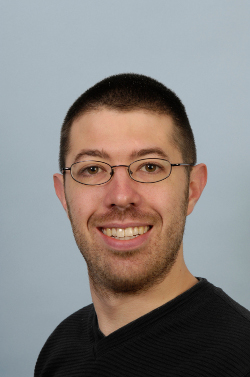Welcome to Frédéric Dupuis

20 February 2018
Frédéric Dupuis joined the Loria last October as a CNRS researcher in the Mocqua (formerly Carte) team. He is originally from Montreal and has come to Nancy to carry on his research into quantum information.
Going into the “as small as possible” scale of computers to make them secure
Frédéric Dupuis works on quantum information and more specifically on theoretical protocols linked to cryptography.
The theory of quantum information uses properties from quantum mechanics, particularly the principles of superposition or entanglement. The unit used to quantify quantum information is called the qubit which is an analogy with bits (0s and 1s) from classical information theory. Currently, Frédéric is trying to find out more about the consequences of encoding with 0s and 1s in a photon, the smallest unit of light per second, with the objective of making computers more secure. As photons are a quantum system, we use the term qubit. The information encoded in a quantum system possesses certain surprising properties. For example, it is impossible to copy or measure it without modifying its content. These strange properties can be turned to our advantage however, for example to detect a spy attempting to copy a secret message.
Frédéric’s research is similar to the work of Simon Perdrix from the same team.
The origins of his research
Frédéric Dupuis defended his thesis on quantum computing at the University of Montreal in 2009. It focused on both quantum cryptography and quantum error correction. When a quantum channel is used, noise can alter the photons between their creation and when they are measured. His work therefore involved studying different types of quantum channels to enable qubits to be sent without generating noise (that is to say something which would modify the state of the photon).
After his thesis, Frédéric Dupuis worked for three years in Zurich as a postdoctoral researcher in physics then a year and a half in computer science in Denmark. He then worked for three years in Brno in the Czech Republic as a university lecturer before joining the Loria.


